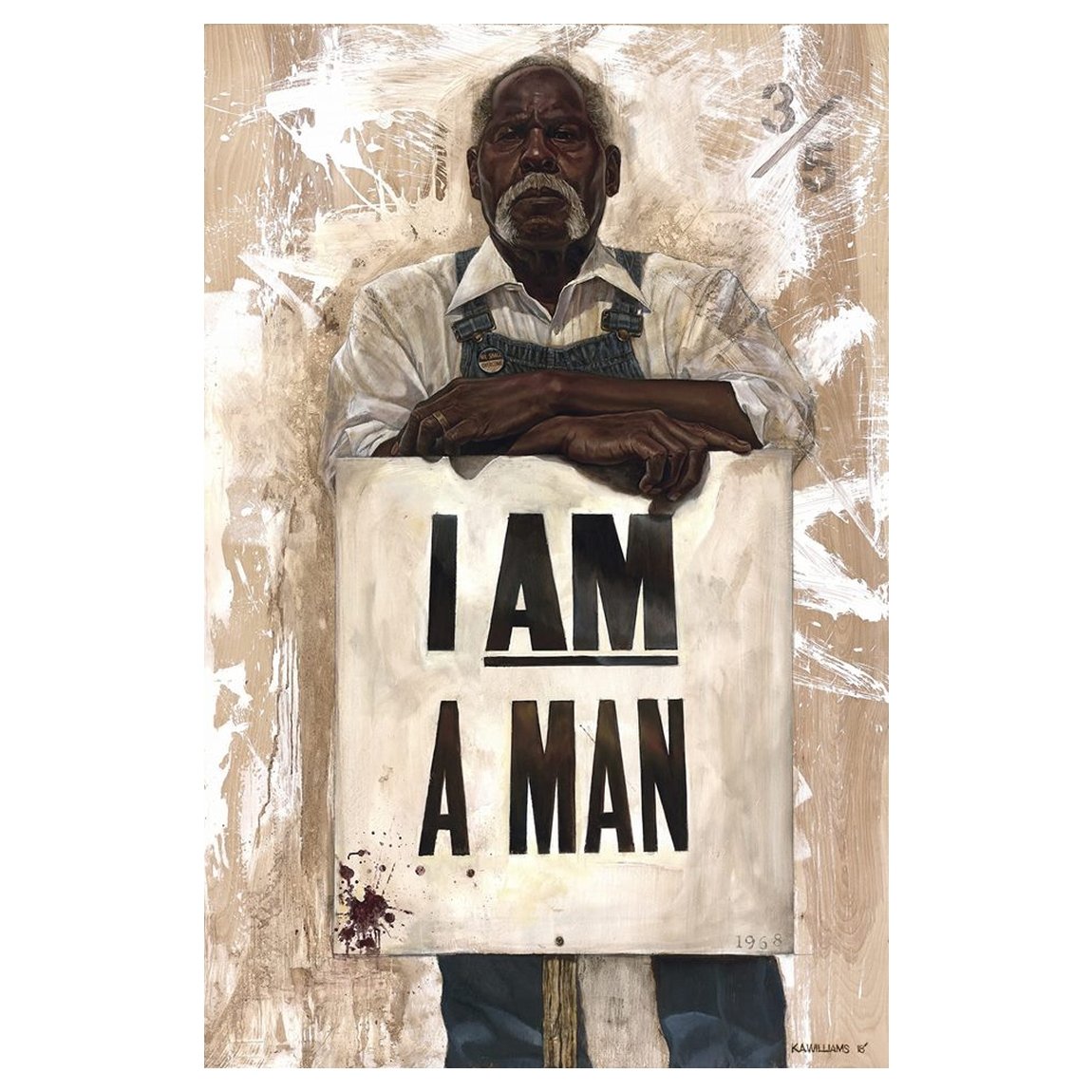I Am a Man
A limited edition release by K.A. Williams II inspired by the Memphis Sanitation Strike of 1968. It depicts an African American man resting upon the iconic “I Am a Man” sign after a long today of fighting for equality, dignity, and respect.
In 1968, Memphis became the epicenter of a groundbreaking movement when Black sanitation workers took to the streets in protest. After two African American laborers were tragically killed by a malfunctioning garbage truck while on duty, these hardworking men and women decided that enough was enough—they could no longer bear the injustice of unsafe working conditions, meager paychecks, and being denied their right to unionize any further. The strike served as an invitation for other marginalized communities across America to stand up against oppressive systems and fight for justice.
In Memphis, numerous Black Civil Rights activists arrived to aid the workers. Reverend James Lawson helped them to organize and then the protests started – dangerous endeavors that could bring retribution from law enforcement. During one march, protesters were doused with mace and tear gas while another ended up becoming fatal for 16-year-old Larry Payne at the hands of police officer’s bullets.
Dr. Martin Luther King Jr. also traveled to Memphis in solidarity with the sanitation workers’ cause. He made speeches that inspired and participated in the marching and protests. During their marches these brave individuals wore signs proclaiming “I Am A Man”. This emphasized they were striving to be recognized as human beings worthy of equality, dignity, and respect.
On this work of art, you will also find the fraction “3/5”. This alludes to the “Three-Fifths Compromise”.
The “Three-fifths Compromise” allowed a state to count three-fifths of each Black person in determining political representation in the House. It was an early American effort to avoid the intersectionality of race, class, nationality, and wealth for political control.
Rather than halting or slowing the importation of slaves in the south, slavery had been given a new life, a political life. Even when the law stopped the importing of new slaves in 1808, the south continued to increase its overall political status and electoral votes by adding and breeding slaves illegally. The Three-fifths Compromise would not be challenged again until the Dred Scott case in 1856.
Measures 54×36 inches. Hand embellished giclee on canvas. Edition size of 25 pieces. Ships unstretched and rolled in a strong tube and box.













